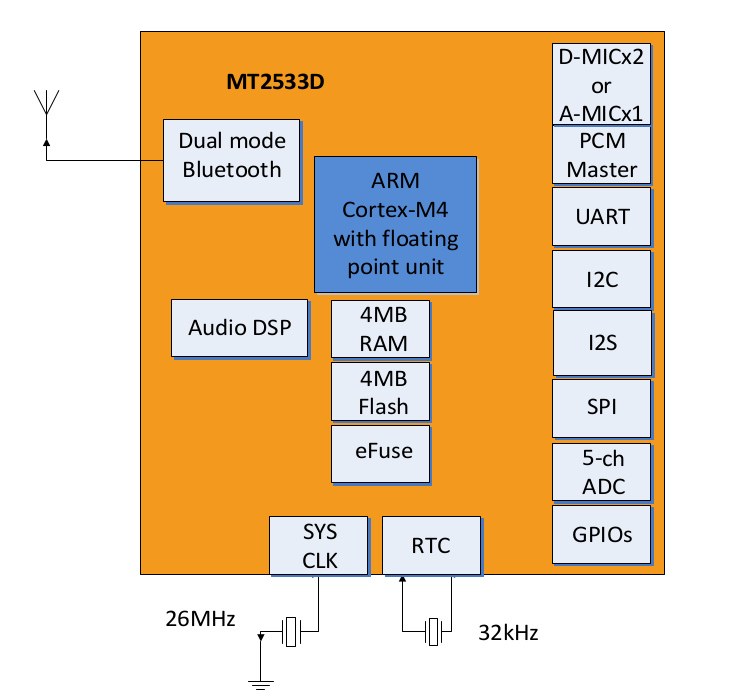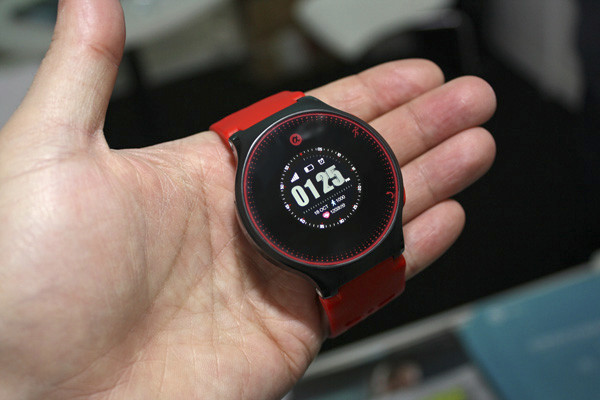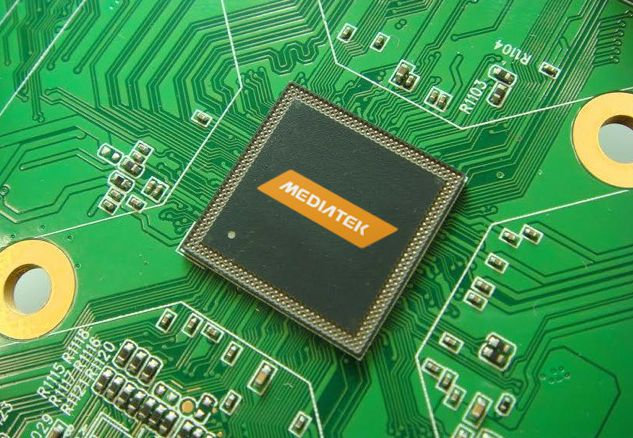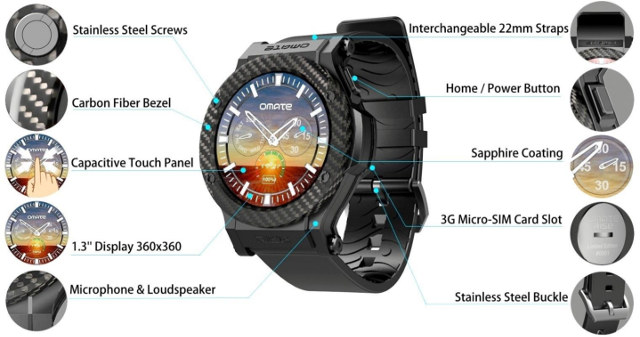After Wio Link and Wio Node boards, Seeed Studio has added a new board to their Wio (Wireless Input Output) family with Wio GPS board based on Microchip SAMD21 Cortex M0+ MCU for Arduino compatibility, and Mediatek MT2503 ARM7 processor for GPS, Bluetooth 3.0, and 2G (GPRS) connectivity. Wio GPS board specifications: MCU – Microchip ATSAMD21G18A-MU ARM Cortex M0+ MCU @ 48 MHz with 256KB flash, 32KB SRAM Wireless SoC – Mediatek MT2503 ARM7EJ-S processor @ 260 MHz Storage – micro SD slot (shared with nano SIM slot) Connectivity (built-in MT2503 in Quectel MC20 module) Bluetooth 2.1 + EDR, 3.0 with SPP Profile and HFP-AG Profile; u.FL connector for external antenna Quad band 2G GSM/GPRS with u.FL connector for external antenna and nano SIM card slot GNSS – GPS + BeiDou + QZSS with u.FL connector for external antenna Audio – Speaker footprint (+/-), 3.5mm AUX jack with mic and stereo audio […]
Linux 4.10 Release – Main Changes, ARM & MIPS Architectures
Linus Torvalds has just released Linux 4.10: So there it is, the final 4.10 release. It’s been quiet since rc8, but we did end up fixing several small issues, so the extra week was all good. On the whole, 4.10 didn’t end up as small as it initially looked. After the huge release that was 4.9, I expected things to be pretty quiet, but it ended up very much a fairly average release by modern kernel standards. So we have about 13,000 commits (not counting merges – that would be another 1200+ commits if you count those). The work is all over, obviously – the shortlog below is just the changes in the last week, since rc8. Go out and verify that it’s all good, and I’ll obviously start pulling stuff for 4.11 on Monday. Linus Linux 4.9 added Greybus staging support, improved security thanks to virtually mapped kernel stacks, […]
Mediatek MT2533D is a Bluetooth 4.2 SiP for Smart Headphones & Hands-Free Systems
There used to be a time when most products were based on a general purpose MCU or processor that you would interface to over chips like audio codecs, memory chips, flash storage, etc…, but in order to cut costs, application specific SoCs have become quite common over the year, so we’ve had mobile application processors for several years already, but more recently we got “wearables” SoCs and “Smart Home” SoCs, and Mediatek has launched MT2533D “headphone” SiP (System-in-Package) combining a Cortex-M4 MCU, 4MB PSRAM, an audio codec, and a dual mode Bluetooth subsystem. Mediatek MT2533D specifications: MCU – ARM Cortex-M4 @ up to 208MHz with 32KB L1 cache, FPU, MPU, AES 128/192/256 crypto engine and TRNG Memory – 160kB SRAMs, 4MB pseudo SRAM Storage – 4MB flash Wireless Connectivity – Bluetooth 4.2 dual mode (classic and low energy) Audio AAC/SBC for Bluetooth audio CVSD/mSBC for Bluetooth speech PCM playback: 8-48kHz […]
Shenzhen Alpha M009 Smartwatch is Powered by Mediatek MT2503 SoC with Integrated Bluetooth, GSM Modem, and GPS
Mediatek MT2502 “Aster” SoC for wearables and IoT was released in 2014 with an ARM7 MCU, built-in Bluetooth, PMIC, and GSM/GPRS modem, and support for external WiFi and GPS chips. The upcoming MT2503 integrates functionality even further as GPS is now embedded inside the SoC, and Shenzhen Alpha Telecom Technology demonstrated their M009 smartwatch based on the latest Mediatek SoC at CES Asia 2016 in Shanghai. M009 smartwatch specifications: SoC – Mediatek MT2503 ARM7 processor with GSM/GPRS modem, Bluetooth 3.0 + EDR 2.1, GPS (MT3333), PMIC Display – 1.22″ or 1.3″ 240×240 resolution TFT display Cellular Connectivity – SIM card Sensors – HRM, pressure sensor Misc – 2x buttons Dimensions – 36 x 32 x 11 mm There will be two version of the processor MT2503A and MT2503D with the former supporting external serial flash. If you’d like to integrate a ready to use module in your design, ATS Link provides […]
Linux 4.6 Release – Main Changes, ARM and MIPS Architectures
Linus Torvalds released Linux Kernel 4.6 earlier today: It’s just as well I didn’t cut the rc cycle short, since the last week ended up getting a few more fixes than expected, but nothing in there feels all that odd or out of line. So 4.6 is out there at the normal schedule, and that obviously also means that I’ll start doing merge window pull requests for 4.7 starting tomorrow. Since rc7, there’s been small noise all over, with driver fixes being the bulk of it, but there is minor noise all over (perf tooling, networking, filesystems, documentation, some small arch fixes..) The appended shortlog will give you a feel for what’s been going on during the last week. The 4.6 kernel on the whole was a fairly big release – more commits than we’ve had in a while. But it all felt fairly calm despite that. Linux 4.5 added […]
Bluboo Xwatch Android Wear Smart Watch is Now Pre-selling for $99
Bluboo Xwatch is a smartwatch based on Mediatek MT2601 SoC that runs Android Wear. So far, we only knew the factory price would be around $80, but the watch has now showed up on several website such as GearBest and GeekBuying and is pre-selling for as low as $99.99 according to Bluboo, which would likely make it the cheapest Android Wear watch on the market today. The specifications have not changed much since the first announcement, but there are lots of differing specs across the sites: SoC – Mediatek MT2601 dual core ARM Cortex A7 @ 1.2GHz with ARM Mali-400 MP GPU System Memory – 512MB RAM Storage – 4GB flash Display – 1.3″ round muti-touch display with 360×360 resolution Connectivity – Bluetooth 4.0, GPS Sensors – Gyroscope, barometer, heart rate monitor, altimeter, compass Battery – 400 to 480mAh polymer battery (80 hours standby time) Dimensions – 5.4 x 4.5 x […]
Mediatek Unveils MT2523 SiP for GPS Enabled, Bluetooth LE Wearables
Silicon manufacturers are starting to launch ever more integrated solutions specifically designed for wearables, and after Samsung S3FBP5A bio-processor unveiled a few days ago, MediaTek has launched MT2623 ARM Cortex M4 System-in-Package (SiP) with GPS, Bluetooth LE, and a MIPI DSI interface. Other details are sparse but here’s what the company disclosed for MT2523: MCU core – ARM Cortex M4 GPU – 2D accelerator supporting true colors, per-pixel alpha channel, anti-aliasing fonts, and 1-bit index color to save memory. Connectivity – Dual-mode Bluetooth Low Energy and GPS Display – MIPI DSI and serial interfaces Integrated PMU Battery Life – More than a week (typical) The SiP’s printed circuit board area is said to be 41% percent smaller than competitors’ solutions. MT2523 will be available to manufacturers in H1 2016, and found in active and fitness smartwatches a little later. Thanks to Nanik for the tip. Jean-Luc Aufranc (CNXSoft)Jean-Luc started CNX Software […]
Omate Rise is a $199 3G and WiFi Smartwatch Powered by Mediatek MT2601 SoC (Crowdfunding)
Most smartwatches sold on the western markets are designed to be smartphone’s companions, and only come with Bluetooth LE connectivity, while we’ve seen many smartwatches (aka watchphones) with SIM card slot originating from China in the past, including the lower end No.1 D3 smartwatch which I reviewed recently. But this may be changing, as Omate is going to launch a new smartwatch called Omate Rise that will include 3G connectivity via a micro SIM card slot, as well as WiFi, Bluetooth Smart, and GPS. Omate Rise specifications: SoC – Mediatek MT2601 dual core ARM Cortex A7 @ 1.2GHz with ARM Mali-400 MP GPU System Memory – 512MB RAM Storage – 4GB flash Display – 1.3″ round muti-touch color display with 360×360 resolution (Innolux) Connectivity – Bluetooth 4.1 LE (A2DP profile), WiFi 802.11 b/g/n, GPS Cellular Connectivity – 3.5G HSDPA (2100/1900 MHz), GPRS / EDGE /GSM (850/900/1800/1900 MHz); micro SIM card […]








